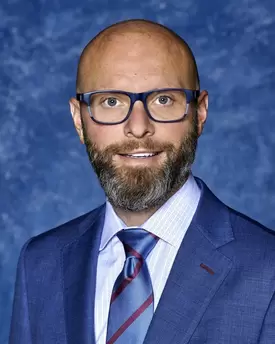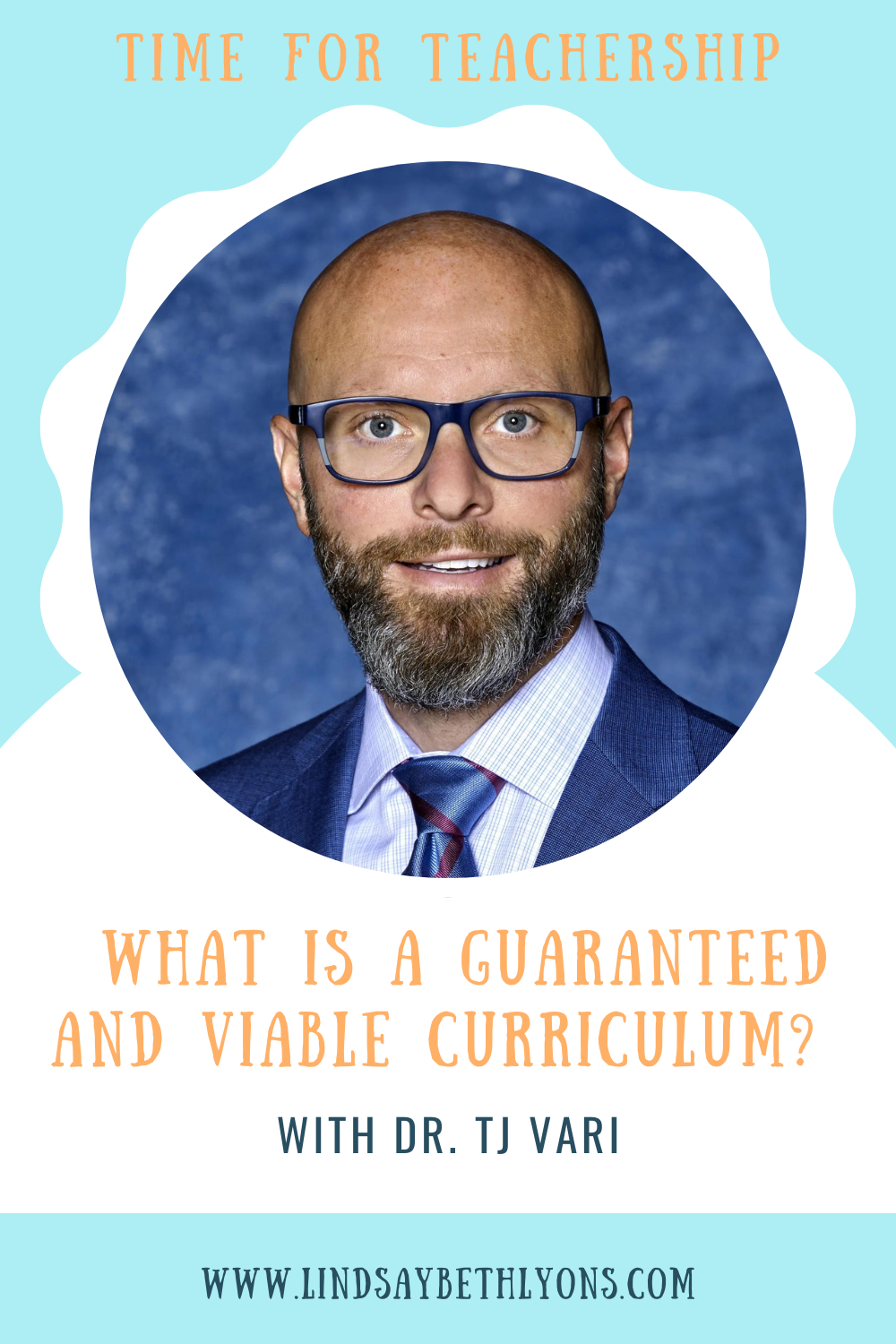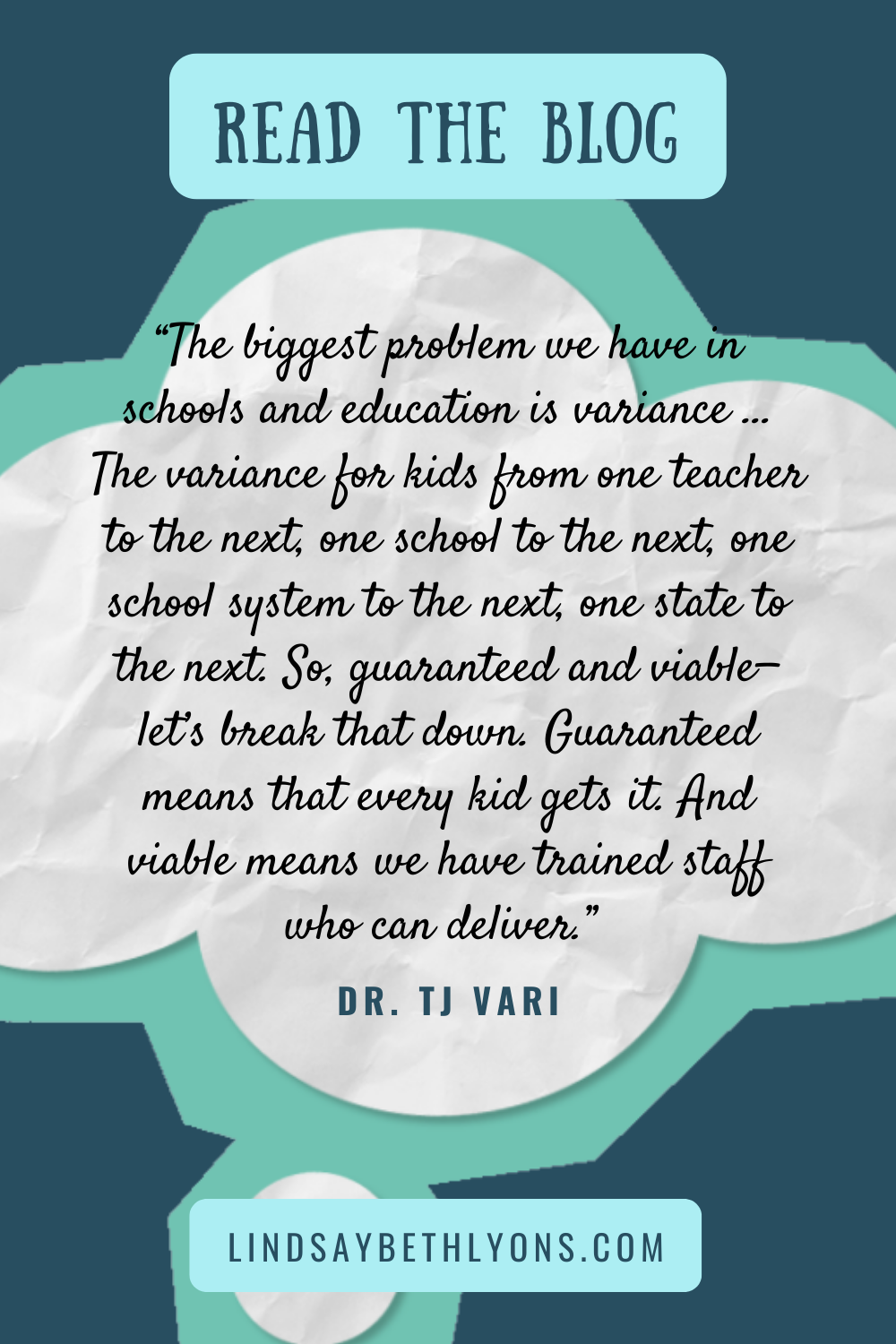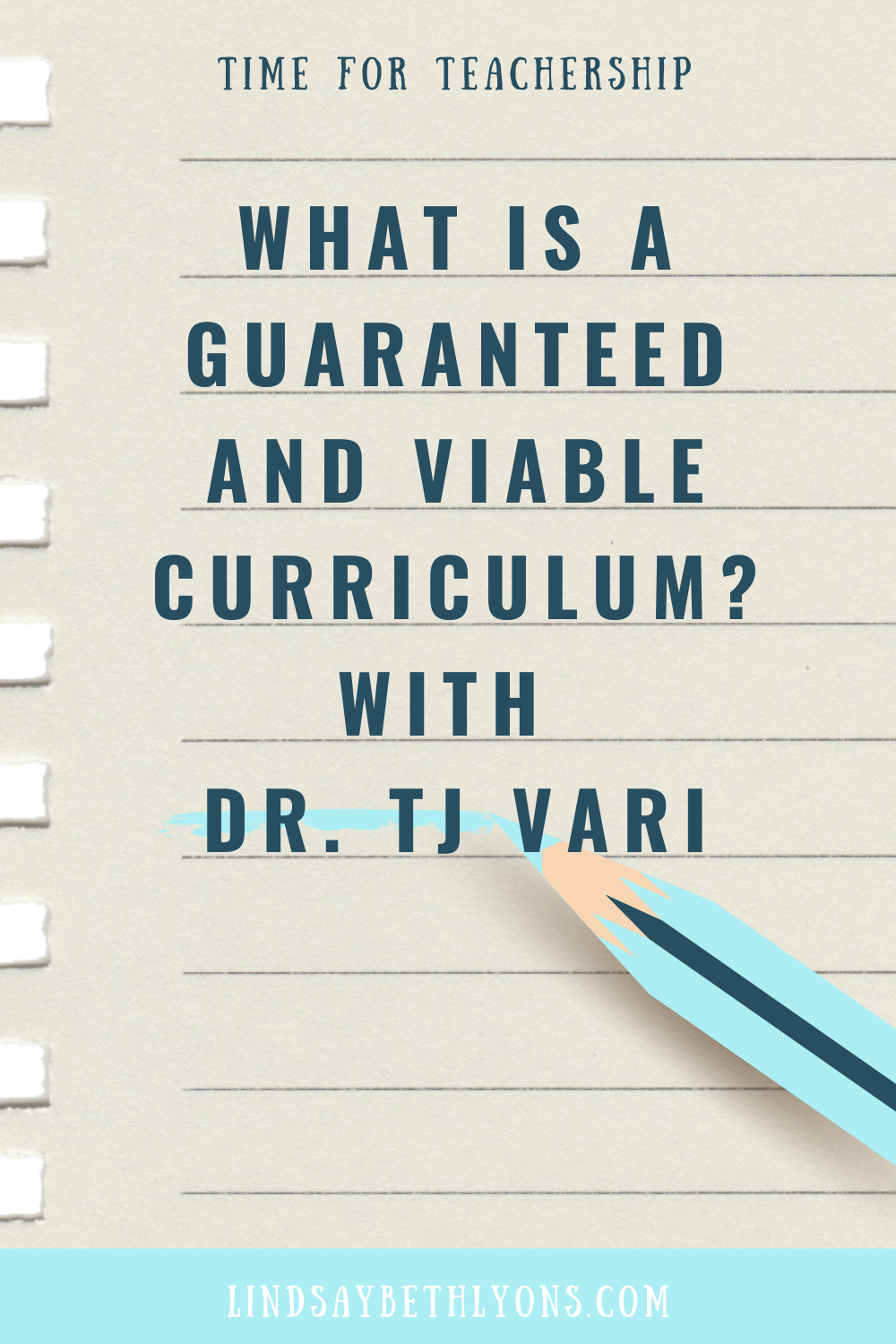
Listen to the episode by clicking the link to your preferred podcast platform below:
As educators, we wear a lot of hats. Every day is full of diverse, varied tasks and responsibilities that keep our days full. Dr. TJ Vari, guest on episode 91 of The Time for Teachership podcast, also wears many hats—he’s a superintendent in a fast-growing school district, professor, coach for principals, father, and social justice advocate. And the variety of this experience, that we all have, is what makes us better educators. Because with each new role, we learn something new that can be used to create positive change and impact in our schools. We touched on a lot of topics together, but most of it centered on this question: how do we evolve our current system so that it doesn’t just prepare students for the real world, but is the real world? For Dr. Vari, two big shifts are achieving guaranteed and viable curriculum, and understanding the art and science of education. Guaranteed and Viable Curriculum One of the biggest problems with our current education system in America today is the variance. Dr. Vari pointed out just how diverse students’ experiences are—education differs between teachers, schools, districts, and states. So even two students in the same school will have wildly different experiences learning, say, grade six math. And think about the differences across states, too! The first step for any change to the school system, then, is to achieve guaranteed and viable curriculum:
As you scale up, guaranteed and viable curriculum should be a priority across school districts and states, too. This is the way we can fight injustice and discrimination and ensure that all students have equal access. Art and Science of Education Talking about a guaranteed and viable curriculum might seem rigid to some educators—shouldn’t education be personalized? Isn’t there room for flexibility? Dr. Vari offered a few thoughts on this dichotomy of flexible vs. rigid curriculum. From his perspective, it comes down to understanding the art and science of education. There are some things that are a science—studied, proven, and should be standard. Other things are an art—open to flexibility and creativity. The four sciences of education are:
So instead of seeing a rigid curriculum in front of you, consider what’s an art and what’s a science. We can all study and grow in knowledge of the science of education while maintaining our unique and creative identities as educators. --- This is just the tip of the iceberg from our conversation with Dr. TJ Vari on episode 91 of The Time for Teachership podcast. You can listen to the full episode or connect directly with him and his work at www.theschoolhouse302.com. Quotes
Click to Tweet: https://ctt.ac/C8g5n
0 Comments
Leave a Reply. |
Details
For transcripts of episodes (and the option to search for terms in transcripts), click here!
Time for Teachership is now a proud member of the...AuthorLindsay Lyons (she/her) is an educational justice coach who works with teachers and school leaders to inspire educational innovation for racial and gender justice, design curricula grounded in student voice, and build capacity for shared leadership. Lindsay taught in NYC public schools, holds a PhD in Leadership and Change, and is the founder of the educational blog and podcast, Time for Teachership. Archives
May 2024
Categories |




 RSS Feed
RSS Feed